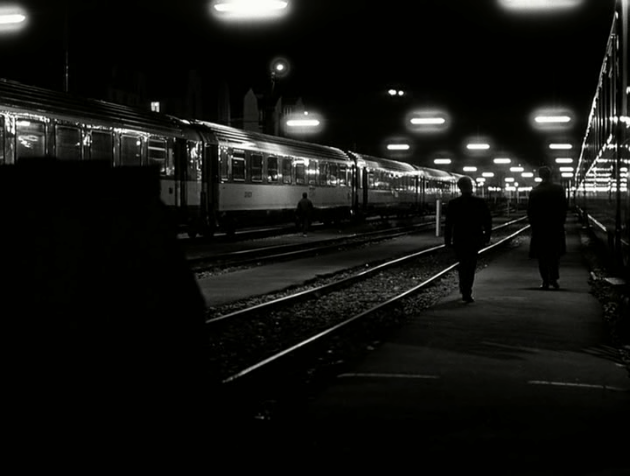
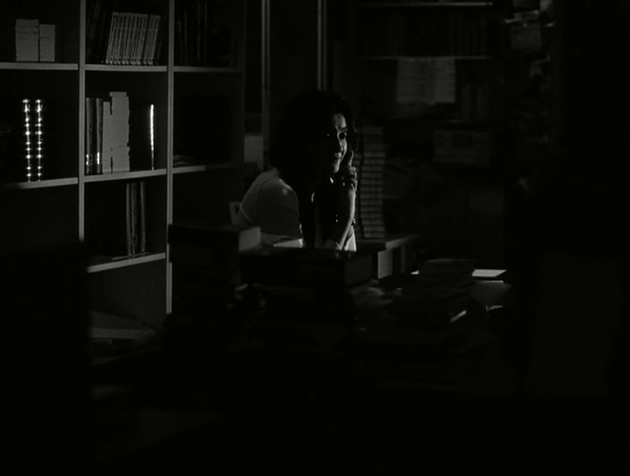
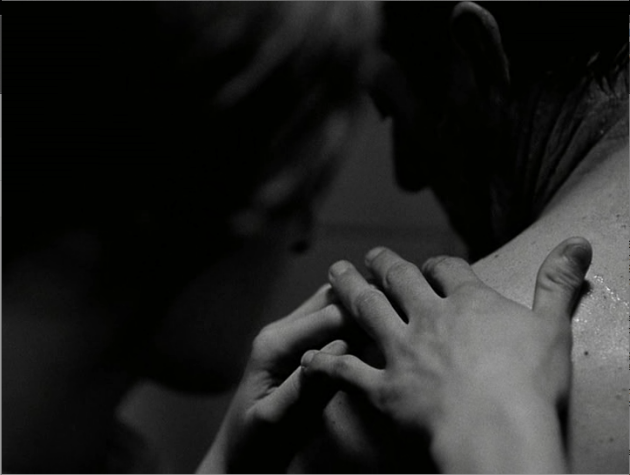
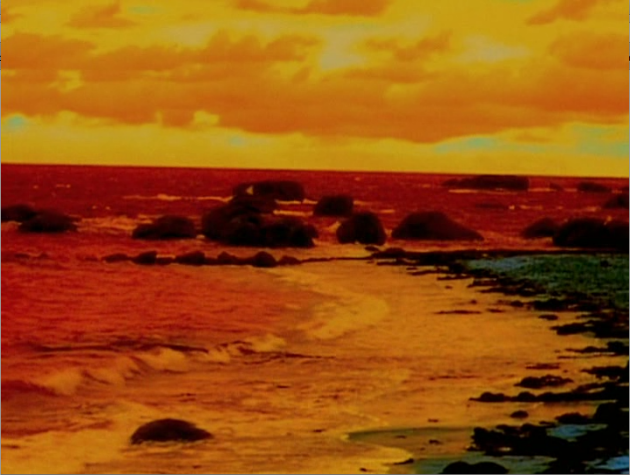
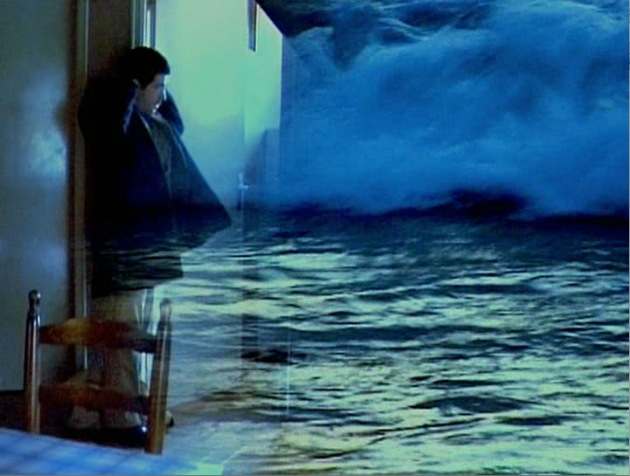
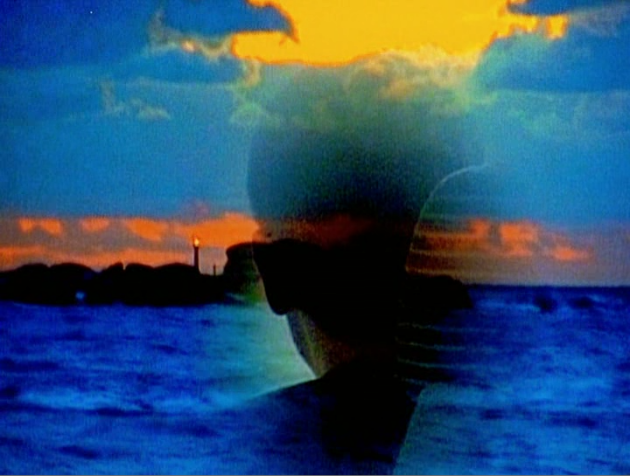
Termed as Godard's third-first film (after Breathless and Sauve qui peut (la vie)), Élogie de l'amour/Ode to Love is an unusually elegant film for his standard. The structure is pretty lean - first hour or so is shot on crisp monochrome 35mm film, the rest is shot on high contrast, saturated video. First part takes place two years after the second. But unlike some of his other films, he avoids his usual diptych sermons. It does concern the usual Godard themes - memories, representation of memories, American hegemony, the war and love. But the film is much more sophisticated and measured than that.
The first part follows a good looking young director Edgar (Bruno Putzulu) as he tries to get things moving on his film about childhood, adulthood and twilight years. He is talking to his art dealer financier M. Forlani and tirelessly pursuing a woman (Cécile Camp) whom he met two years earlier, to star in his film. She in turn refuses repeatedly.
The second part of Élogie concerns largely on Godard's preoccupation with Spielberg's Schindler's List and its representation of Holocaust. His disdain for American culture dominance worldwide hasn't really been a secret, but Schindler's List was such a clutch for him to expound on his hatred fully. There are a pair of arrogant American producers buying off the rights to two old former WWII resistance fighters' stories. The script will be written by a famous American writer (William Styron) and there will be scenes of their younger nude bodies rolling together. But in order to save the historic hotel they own, the old couple cash the check given by Americans in two days.
Love is an interesting subject for Godard since he never dealt with it realistically in his films. It's almost an uncharted territory for him. But I was taken aback by his presentation. It is done so naturally and tenderly without his usual cynicism. The glimpse of the woman's smile on the phone and tender exchanges are the extent of the love story Godard provides- there are no shot/reverse shot for this scene. We only hear one side of the conversation (hers). The woman in question, the grand daughter of the resistance fighters, who later commits suicide, is never fully shown.
Godard's video images are out of this world. It seems Élogie is the culmination of all his interests and obsessions over the years - video technology, Anne-Marie Mieville's influence, Kosovo, the notion of adulthood or lack there of, etc. It's heady, quotation heavy, and spectacularly beautiful.